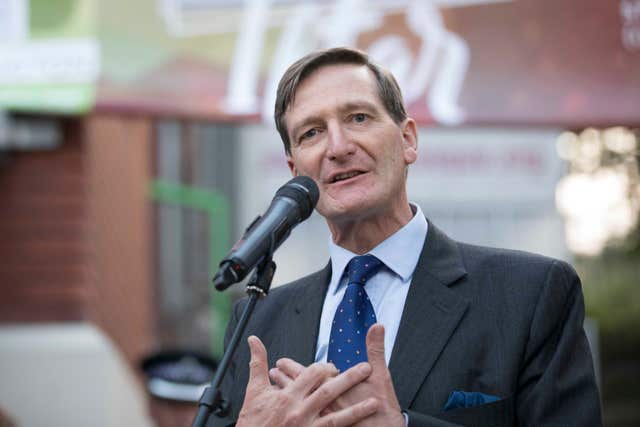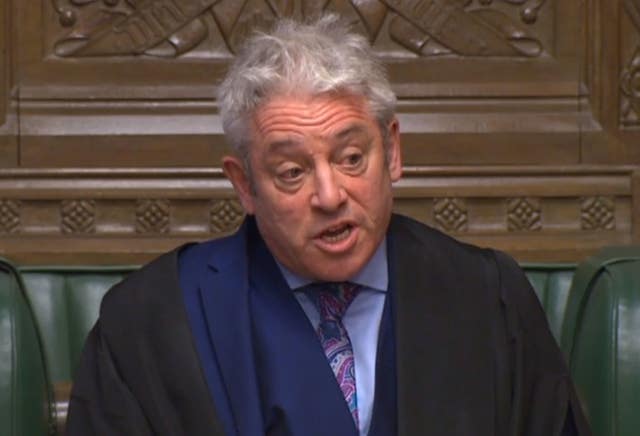Brexit amendment: Why was John Bercow’s ruling so controversial?
The Speaker has come under fire after a dramatic day in Westminster.

The furore over Speaker John Bercow’s decision to allow a vote on a Brexit amendment leads many of the front pages on Thursday.
Here, the Press Association looks at the key questions after a dramatic day in Westminster.
– What happened?
Mr Bercow selected a proposal from former minister Dominic Grieve, which attempts to speed up the process for the Government to reveal what it will do next if Theresa May’s deal is rejected.

– What did the amendment say?
Mr Grieve’s amendment was tabled against a Government motion detailing the timetable for the Brexit deal debate.
It said the Government should return with a revised EU exit plan within three sitting days if the Prime Minister’s deal is defeated next week.
MPs heard the original process outlined in the European Union (Withdrawal) Act 2018, which requires a statement within 21 days, takes precedence.
– How did the vote go?
Mr Bercow allowed a vote on the amendment which was ultimately approved by 308 votes to 297, majority 11.
– What was the problem?
Ministers argued that the Government-tabled motion was not amendable and so Mr Grieve’s amendment should not have been tabled for a vote.
The original business motion was put “forthwith”, which was previously taken to mean that it should be dealt with without a debate or chance of amendment.
The Speaker, who presides over the House of Commons, makes decisions based on the rules of the House and can be advised by parliamentary clerks.
– What did Mr Bercow say?

Following criticism from the Conservative benches, he said “I’m trying to do the right thing and make the right judgments. That is what I have tried to do and what I will go on doing.”
During various points of order, he said he allowed the amendment to be voted on “not because I am setting myself up against the Government, but because I am championing the rights of the House of Commons”.
– What have critics of Mr Bercow said?
Crispin Blunt was among those to question the Speaker’s impartiality, saying many will have the “unshakeable conviction that the referee is no longer neutral”.
The Leader of the House Andrea Leadsom said there were “some concerns” about his decision and asked him to confirm it was taken with “full advice” from the Commons clerk Sir David Natzler.
Mr Bercow said he had consulted privately with the clerk and other officials, but did not confirm his decision was taken with agreement from Sir David.
– What do the Thursday papers say?
From “out of order!” to “Speaker of the Devil”, many papers have levelled criticism at Mr Bercow.
The Daily Mail has called him an “egotistical preening popinjay (who) has shamelessly put his anti-Brexit bias before the national interest – and is a disgrace to his office”, while the Daily Express accused Mr Bercow of “flouting rules to thwart Brexit”.
The Daily Telegraph accuses Mr Bercow of “ignoring legal advice and parliamentary precedent” but the paper’s leader says it may turn out to be a positive move, writing: “Even if he has done it for the wrong reasons, the decision to bring matters to a head is arguably the correct one.”





